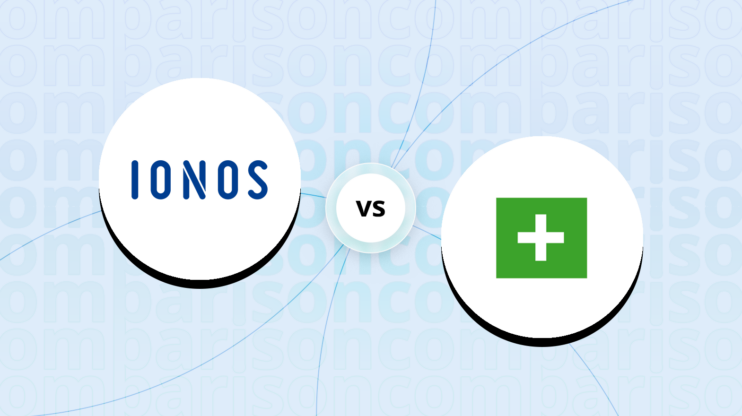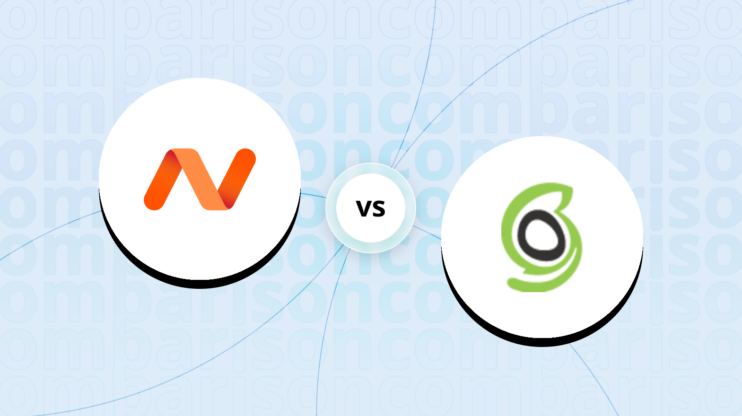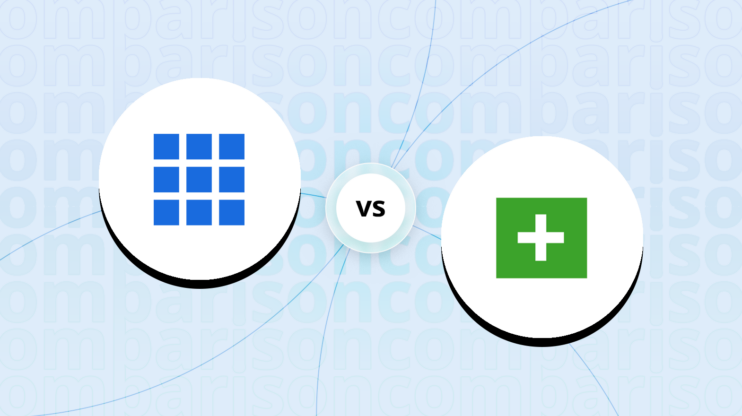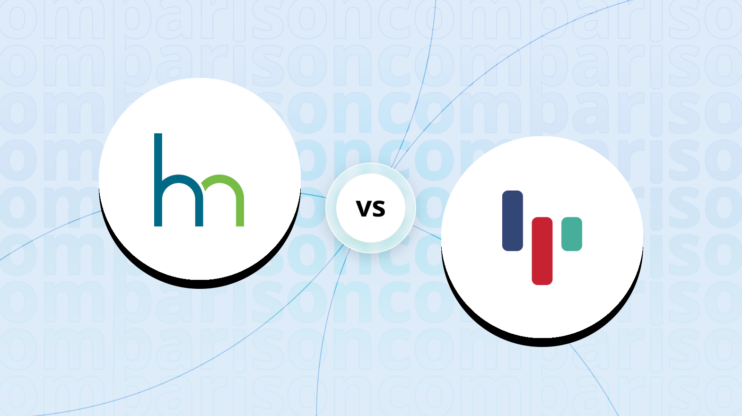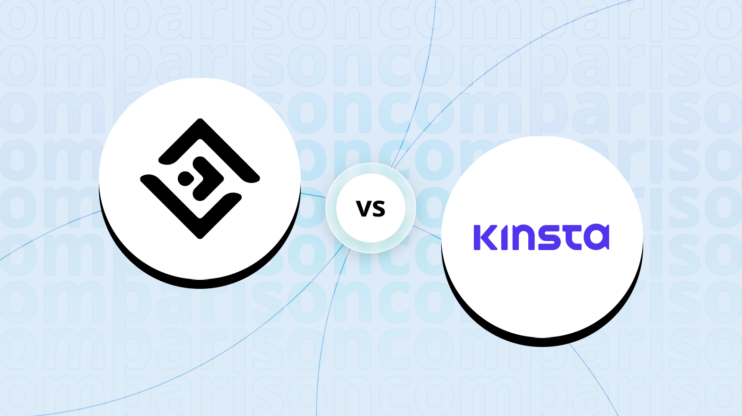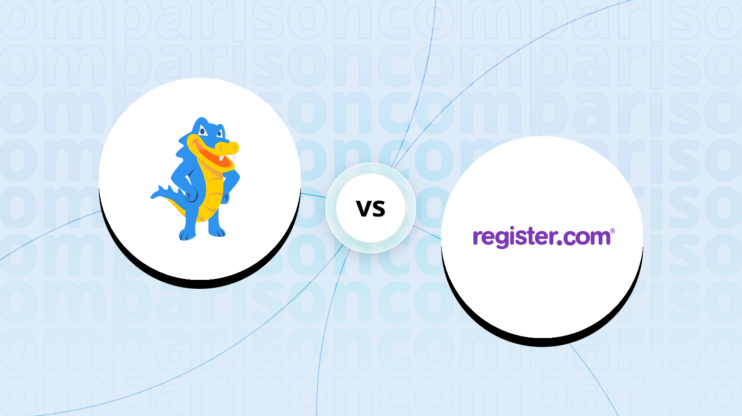Namecheap vs Name.com: Final verdict
Looking over Namecheap vs. Name.com, it’s clear why both hosts are so popular. They have both hosted millions of
websites that run on WordPress for decades, building up a loyal customer base.
-
Name.com (Overall grade: 7.3)
holds a slight edge in overall reliability and performance with superior response times and a higher uptime guarantee of 99.99%. It supports a variety of hosting types including scalable cloud hosting which broadens its appeal to tech-savvy users needing flexibility. Name.com’s robust security measures, including free daily backups and SSH access, strengthen its reliability. Although it lacks a built-in website builder and free SSL certificates, its simple interface and efficient customer support make it a sound choice for those seeking solid performance and ease of use.
Namecheap (Overall grade: 7.2)
provides an extensive range of hosting options including shared, VPS, and dedicated hosting, suited for various needs from small businesses to high-traffic websites. Its standout features include SSD storage, quick WordPress load times, and a user-friendly website builder. However, Namecheap falters in performance consistency and response times, despite compensating with free hosting in cases of downtime. The inclusion of comprehensive security measures and robust email services further enhances its attractiveness, making it a worthy contender, especially for new and budget-conscious users.
 Overall grade:7.2 |
 Overall grade:7.3 |
|
|---|---|---|
| Uptime and Availability | 8.0 | 9.5 |
| Hosting Performance | 8.2 | 8.3 |
| Hosting Security | 8.5 | 8.2 |
| Price | 8.7 | 8.8 |
| Hosting Features | 7.5 | 7.4 |
| Ease Of Setup | 8.8 | 8.2 |
| User Management | 0.0 | 0.0 |
| Customer Support | 8.0 | 8.2 |
| User feedback | 4.3/5 | 2.7/5 |
Hosting types offered
Both platforms provide a variety of hosting types, each designed to meet the different needs of users.
 |
 |
|
|---|---|---|
| Shared hosting | ||
| Cloud hosting | ||
| WordPress hosting | ||
| Ecommerce hosting | ||
| VPS hosting | ||
| Dedicated hosting |
Although both offer a variety of hosting plans tailored to different needs, in
certain cases, one platform may prove to be more suitable.
Detailed comparison
Uptime and availability
Evaluates the average uptime statistics, uptime guarantee and overall availability of the hosting
provider
Score Components:
- Uptime percentage (30%): evaluates the uptime statistics in given period of time
- Uptime guarantee (20%): Assesses if the platform offers an uptime guarantee and
whether the actual uptime matches the promised guarantee. - General performance (25%): Evaluates how fast is the average response time and overall
it’s stability. - Responsiveness (10%): Adaptability to different devices and screen sizes.
- Availability (25%): Reflects the total downtime and number of outages.
 8.0
8.0
 9.5
9.5
🏆 Winner Name.com: Offers superior reliability and faster response times for site owners.

Name.com presents a higher uptime guarantee at 99.99%, ensuring minimal interruptions. Its average response time of 220ms significantly surpasses the shared hosting market average. The hosting provider demonstrates reliable performance with only one minute of downtime recorded during a monitored period. Additional features include free automated backups, secure web hosting, and intuitive management tools, catering well to beginners and experienced users alike.

Namecheap, while offering a solid uptime guarantee of 100% for some services, shows variability in actual performance with an average uptime of 99.96%. The average response time of 1.05 seconds is slower compared to other market options. Namecheap’s testing period had 16 outages leading to 31 minutes of downtime. Customers benefit from up to a month of free hosting as compensation for downtime, though, which adds value to its service. The host uses tools like StatusCake and Uptime.com to monitor performance and response times.
Which one has better hosting performance?
Score Components:
- Hosting speed (30%): This includes SSD quality, Load times, PageSpeed score ranges,
additional information on website speed, built-in plugins for performance enhancement, available caching
methods, and CPU/RAM options - CDN (20%): Considers whether CDN is available or not, whether it’s free or paid, and
the quality of the CDN service - Available data centers (30%): Evaluates the number of data centers and their locations
globally. - Scalibility (20%): Looks at whether elastic scaling is available, the process required
to scale (manual upgrade vs. automatic scaling), the presence of dedicated servers, and the costs
associated with scaling.
 8.2
8.2
 8.3
8.3
🏆 Winner Name.com: Name.com offers a reliable and scalable hosting solution that balances performance and ease of use for diverse needs.
Namecheap and Name.com both present competitive hosting services. Namecheap boasts SSD storage and provides a stellar performance with 0.7 seconds fully loaded time for their WordPress hosting. They offer unmetered bandwidth across most plans and free CDN. Name.com hosts on DigitalOcean’s cloud, featuring powerful 2nd gen Intel Xeon Scalable processors. They provide global data centers and built-in performance enhancements. For CDN services, Namecheap includes it for free with their WordPress hosting, whereas Name.com’s offering isn’t detailed but leverages DigitalOcean’s infrastructure for efficient distribution.
Website Speed
Namecheap’s WordPress hosting loads pages in just 0.7 seconds, and it maintains a Time to First Byte of 192 milliseconds, reflecting superior speed. Furthermore, their infrastructure includes SSD Raid 10 storage which enhances both read and write times. For Name.com, despite leveraging DigitalOcean’s advanced processors, specific speed metrics aren’t provided, leaving a slight gap in comparable speed. Namecheap’s built-in CDN further elevates its performance, ensuring quicker global page loading.
Scalability
Namecheap offers varied plans from shared to VPS hosting, providing extensive options for upgrading manually. They don’t have details on elastic scaling. Their VPS plans include up to 8 CPU cores and 12 GB of RAM, costing progressively more as you scale. Name.com boasts excellent scalability, allowing seamless upgrades for memory and disk space as needed, although specifics on dedicated servers and automatic scaling aren’t provided. Their options for flexible hosting plans cover from simple websites to complex applications, making them a versatile choice.
Which one has better security features?
and regulatory requirements
Score Components:
- Technical security measures (40%): This includes encryption, firewalls, DDoS
protection, secure configurations, server monitoring, access control and availability of security addons
(e.g Sitelock security). - Operational security measures (30%): Encompasses data privacy, backups and data
redundancy. - Compliance and certifications (20%): Adherence to legal and regulatory requirements
(e.g., GDPR, HIPAA) and possession of certifications (e.g., ISO 27001, SOC 2). - Business and reliability (10%): Factors in the provider’s reputation, uptime
guarantees, and customer support.
 8.5
8.5
 8.2
8.2
🏆 Winner Namecheap: Offers a robust set of security measures suitable for various web hosting needs.
Technical security measures:
Namecheap provides a comprehensive suite of security features, including single domain, wildcard, and multi-domain SSL certificates. Their PHP versions range from 5.X to 8.X, giving flexibility for different projects. Name.com offers similar SSL options, but the range of their SSL prices varies more widely. Namecheap’s compatibility with more extensive PHP versions gives it an edge over Name.com, which supports PHP 7.0 to PHP 8.0+. Both providers include SSH access, spam protection, and MySQL for secure database management, but Namecheap goes a step further with additional features such as SPF, Domain Keys, and PGP/GPG encryption for emails.
Operational security measures:
Namecheap offers automated two-factor authentication (2FA) for added account security, premium DNS services for under $5 a year, and different email filtering options like Jellyfish Spam Protection and BoxTrapper. They also provide Cloud Storage for 100% uptime and data protection, which is not mentioned by Name.com. Name.com ensures operational security through regular server monitoring, automated backups, and password-protected directories, which are standard features. Both provide 24/7 customer support, but Namecheap’s infrared backup and monitoring tools are accessible directly through cPanel.
Compliance and certifications:
Namecheap is GDPR compliant, offering rights such as data rectification and the right to be forgotten. While Namecheap’s compliance with PCI or HIPAA standards is not explicitly mentioned, they provide features that aid in meeting these requirements. Name.com also complies with GDPR, ensuring users’ data privacy and secure processing. Both providers meet standard GDPR requirements, but neither list HIPAA compliance or detailed PCI compliance.
 |
 |
|
|---|---|---|
SSL certificate |
Yes |
Yes |
Additional security features |
Yes |
Yes |
PHP versions |
PHP 5.X – 8.X |
PHP 7.0 – 8.0+ |
GDPR compliance |
Yes |
Yes |
HIPAA compliance |
Not specified |
Not specified |
PCI compliance |
Not specified |
Not specified |
Hosting features
Score Components:
- Domains (20%): Assesses the availability of a free domain, domain purchase options, and
pricing - Email (15%): Considers if the provider offers full email hosting, or is reselling
third-party service, and if the email is only transactional or not - Website builder (15%): Checks if website builder is available, and it’s user
friendliness and overall the level of customization allowed. - Staging environment (20%): Determines if a staging environment is available, allowing
for testing changes before going live. - FTP & SFTP accounts (10%): Evaluates if and how easily users can access FTP and
SFTP accounts - Git and SSH access (20%): Assess whether Git is integrated into the hosting service and
if SSH access is provided
 7.5
7.5
 7.4
7.4
🏆 Winner
Namecheap: Namecheap provides a comprehensive hosting solution with a variety of plans and rich features suitable for different user needs.
When comparing Namecheap and Name.com, both offer robust hosting features tailored to diverse requirements. Namecheap stands out with its extensive range of plans, including shared, reseller, and WordPress hosting. A unique selling point is the inclusion of a website builder across all shared hosting plans, which boasts user-friendliness and allows for complex customization. Furthermore, Namecheap’s plans come with 50 free PositiveSSL certificates for one year, making it an attractive option for those looking for enhanced security. Another perk is its free Supersonic CDN, providing basic DDoS protection and improved website performance. Namecheap also offers a seamless migration service and a 30-day money-back guarantee, enhancing its appeal to potential users.
On the other hand, Name.com emphasizes simplicity and reliability with features such as automated backups every 48 hours and a one-click setup for popular CMS like WordPress. While the provider does not include a built-in website builder, it offers free daily backups and an enterprise webmail interface. Name.com supports unlimited FTP accounts and provides secure SSH access, making it suitable for more tech-savvy users. They also facilitate easy management through cPanel and support multiple PHP versions. Both providers offer reliable security features, but Name.com does not include free SSL certificates. Overall, the choice between the two may depend on whether a user values additional free services and website builder capabilities or robust file management and security features.
 |
 |
|
|---|---|---|
Free domain |
No |
No |
Free SSL |
Yes, for the first year |
Yes, Let’s Encrypt |
Email hosting |
Yes |
Yes |
Website builder |
Yes |
No |
Staging environment |
No |
No |
FTP & SFTP accounts |
Yes |
Yes |
Git and SSH access |
No Git, Yes SSH |
Yes |
Free backup |
Yes, with Stellar Plus & Business |
Yes |
Money back guarantee |
Yes, 30 days |
No information |
a location.
As a result in rare cases the features mentioned here can differ from the ones you see on their websites.
Both providers support a range of users from beginners to experts with user-friendly website builders and WordPress staging areas. However, in terms of developer tools, both Namecheap and Name.com offer robust options including SSH access, support for multiple programming languages, and Git for version control, thus appealing to developers looking for advanced capabilities.
Email services:
Email services at Namecheap offer extensive email services with 30 to unlimited mailboxes depending on the plan, alongside unlimited email forwarders and autoresponders. It provides domain-based email addresses with Jellyfish Spam Protection. Name.com also provides robust email hosting with over 100 email accounts and secure email encryption. Namecheap’s services are supplemented by detailed spam protection tools like SpamAssassin and BoxTrapper, whereas Name.com ensures clean communication with its enterprise webmail interface and spam protection features. Both hosts do not resell third-party email services directly within their hosting plans.
Price
Score Components:
- Plan value (40%): What each pricing tier offers.
- Transparency and clarity (30%): Clearness of pricing structures.
- Flexibility of plans (20%): Range of options to suit different budgets.
- Hidden costs (10%): Additional expenses not included in the plan.
 8.7
8.7
 8.8
8.8
🏆 Winner
Name.com: Offering a blend of affordability and extensive feature sets for varied hosting needs.
Evaluating the pricing of plans among various hosting providers can be complex due to their differing pricing and renewal strategies. Additionally, certain plans require annual commitments, which adds to the difficulty of making comparisons. The prices listed are based on monthly commitments; plans requiring annual commitments are indicated. Additionally, although some providers offer identical plans for WordPress and shared hosting, we have created separate tables for each to enhance clarity.
Comparing the pricing plans of Namecheap and Name.com reveals that Namecheap offers a variety of affordable shared hosting and managed WordPress plans, with introductory prices as low as $1.98 per month. Namecheap’s plans also come with free domain names for the first year and comprehensive security features. On the other hand, Name.com differentiates itself with scalable cloud hosting plans powered by DigitalOcean, starting at $6.00 per month for 25 GB SSD storage. Name.com also features web hosting with one-click WordPress installations at $6.00 per month, emphasizing ease of use and flexibility. Both providers offer substantial value, but Name.com has an edge with its versatility and higher user rating.
 |
 |
|---|---|
|
EasyWP Starter $6.88
1 website, 10 GB SSD, 50k visitors/month, Free CDN & SSL, easy backups Value for price:9.0
|
WordPress Hosting $2.50
Unlimited storage and bandwidth, free daily backups, one-click installation, Free SSL Value for price:9.2
|
|
EasyWP Turbo $12.88
1 website, 50 GB SSD, 200k visitors/month, 1.5x CPU & RAM, Free CDN & SSL, easy backups Value for price:8.8
|
N/A |
|
EasyWP Supersonic $19.88
1 website, 100 GB SSD, 500k visitors/month, 2x CPU & RAM, Free CDN & SSL, easy backups Value for price:8.6
|
N/A |
 |
 |
|---|---|
|
Stellar $4.48
3 websites, 20 GB SSD, 30 mailboxes, free domain (1st year), SSL & CDN, free migration Value for price:8.7
|
Personal Plan $7
1 website, 10 GB storage, 100 email accounts, Free SSL Value for price:8.4
|
|
Stellar Plus $6.48
Unlimited websites, Unmetered SSD, unlimited mailboxes, free domain (1st year), SSL & CDN, free migration Value for price:8.5
|
Premium Plan $11
25 websites, 100 GB storage, unlimited email accounts, Free SSL Value for price:8.5
|
|
Stellar Business $9.48
Unlimited websites, 50 GB SSD, unlimited mailboxes, free domain (1st year), SSL & CDN, free migration Value for price:8.6
|
Business Plan $18
Unlimited websites, unlimited storage & email accounts, Free SSL Value for price:8.6
|
 |
 |
|---|---|
| N/A |
Digital Ocean 25GB Droplet $6
1 website, 25 GB SSD, 1 VCPUS, 1 GB RAM, 1 TB bandwidth Value for price:8.5
|
| N/A |
Digital Ocean 50GB Droplet $12
1 website, 50 GB SSD, 1 VCPUS, 2 GB RAM, 2 TB bandwidth Value for price:8.6
|
| N/A |
Digital Ocean 60GB Droplet $18
1 website, 60 GB SSD, 2 VCPUS, 2 GB RAM, 3 TB bandwidth Value for price:8.5
|
| N/A |
Digital Ocean 80GB Droplet $24
1 website, 80 GB SSD, 3 VCPUS, 4 GB RAM, 4 TB bandwidth Value for price:8.7
|
| N/A |
Digital Ocean 160GB Droplet $48
1 website, 160 GB SSD, 4 VCPUS, 8 GB RAM, 5 TB bandwidth Value for price:8.8
|
| N/A |
Digital Ocean 320GB Droplet $96
1 website, 320 GB SSD, 8 VCPUS, 16 GB RAM, 6 TB bandwidth Value for price:8.9
|
Enterprise plans
For enterprises, Namecheap offers advanced dedicated server hosting starting from $44.88 per month with customizable configurations and 24/7 support. This makes it suitable for high-traffic websites and complex applications. Name.com’s scalable cloud hosting plans like the Digital Ocean 320GB Droplet provide substantial resources with up to 8 VCPUS and 16 GB memory, starting at $96.00 per month, appealing for enterprises needing extensive storage and bandwidth. Both providers deliver powerful solutions, but Name.com stands out for its flexibility in cloud hosting.
Namecheap vs Name.com: Ease of setup
platform.
Score Components:
- Site migration (25%): Assesses whether the provider offers tools for site migration,
either automated or manual, and whether these services are free or require a fee. - Admin panel usability (35%): Evaluates the type of admin panel provided, such as the
standard cPanel or a custom solution, focusing on its accessibility and user-friendliness for both
technical and non-technical users. - Setup features (20%): Examines the availability and ease of use of various setup
features, including FTP accounts, file managers, email account setup, PHPMyAdmin, and easy CDN
configuration. - Help center quality (20%): Measures the quality and accessibility of the provider’s
help center resources, including articles and tutorials.
 8.8
8.8
 8.2
8.2
🏆 Winner
Namecheap: A user-friendly hosting provider with efficient setup and extensive support options.
Namecheap provides an EasyWP dashboard that is customized for easy management, eliminating the complexities often associated with cPanel. For users who prefer cPanel, Namecheap still offers it, making it accessible to both technical and non-technical users. The EasyWP dashboard is particularly user-friendly, with all necessary tools readily available. On the other hand, Name.com offers the standard cPanel interface, which is well-known for its ease of use and familiarity among users. Both platforms simplify website management, but Namecheap’s unique EasyWP dashboard gives it a slight edge for those seeking an alternative to the conventional cPanel.
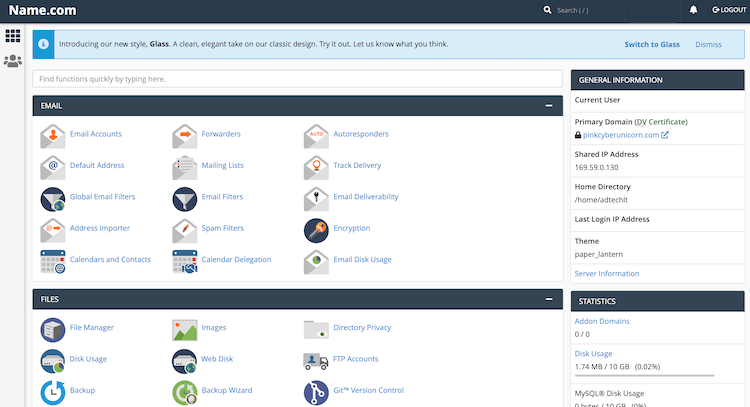
Namecheap’s one-click installations via Softaculous support over 200 different scripts including popular CMS options like WordPress, Joomla, and Drupal. This makes it incredibly accessible for setting up diverse types of websites. Name.com offers similar ease with one-click installations for WordPress and a supportive cPanel interface for easy management. Both providers are strong in terms of admin panel accessibility, but Namecheap’s EasyWP dashboard offers a more streamlined approach for non-technical users.
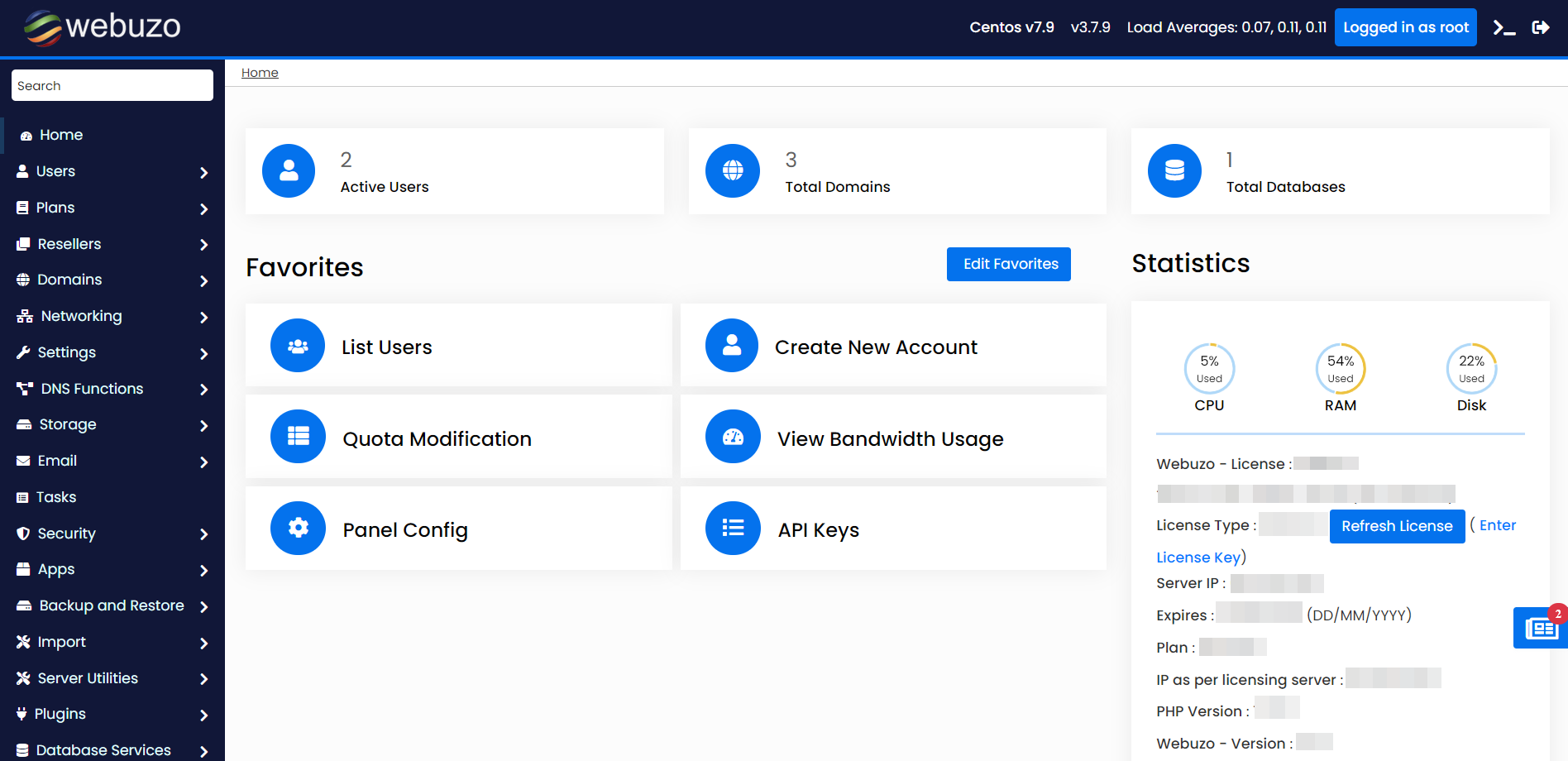
When comparing migration tools, Namecheap stands out with its free migration service handled through the All-in-One WP Migration plugin. This service is inclusive, working with various hosts like GoDaddy, BlueHost, SiteGround, and more, at no extra cost. Name.com, however, does not explicitly mention a free migration service, which could entail additional steps or costs for users looking to switch providers. This makes Namecheap’s migration offering more appealing and hassle-free.
The platforms provide extensive knowledge bases filled with guides, how-to articles, and instructional content. Namecheap offers a wide range of resources alongside 24/7 chat and phone support. Name.com also provides a Knowledge Base with categorized articles, live chat support during specific hours, and a support ticket system for personalized help. The coverage and accessibility of Namecheap’s support, offering around-the-clock assistance, make it more convenient for users seeking immediate help.
User management
accessibility.
Score Components:
- Role customization (40%): Flexibility in creating and defining user roles and
permissions. - Ease of management (30%): User interface and tools for managing users.
- Access control (20%): Effectiveness of access control measures for different user
levels. - Scalability (10%): Ability to manage a growing number of users efficiently.
 0.0
0.0
 0.0
0.0
🏆 Winner Name.com: User management capabilities comparison with Namecheap.
When comparing the user management features of Namecheap and Name.com, it becomes evident that both platforms offer limited information about their capabilities. Namecheap’s user management is not documented, leaving us to assume it lacks distinct user roles and permissions. Name.com, while not detailed, allows for reference to their official documentation or support team for clarity. The lack of explicit information makes it challenging to assess their relative performance, but the need for further support from Name.com’s side hints at more sophisticated underlying structures which are yet unexplored.
The user interface and tools for managing users could not be explicitly compared due to the lack of detailed information from both providers. Without solid data on the user interfaces, assumptions about ease of use, graphical layouts, and administrative panels remain speculative. Namecheap’s offerings in this regard are unspecified, while Name.com implies the presence of tools but directs users to their resources for specific details. This reflection creates an ambiguous footing for defining intuitive and user-friendly interfaces.
Access control measures in both Namecheap and Name.com are not well defined in our current context. Namecheap’s lack of any documented user management abilities suggests potential limitations in effectively managing growing numbers of users. Name.com, while ambiguous, tentatively points towards more structured but undetailed access control capabilities. Both hosting providers may have systems in place, but their efficacy in scaling with user growth is difficult to gauge without more transparent information.
Name.com user roles table:
| Role | Description | Access highlights |
|---|---|---|
| Administrator | Highest-level role with full control over all aspects. | Full access to all settings, user management, and content. |
| Editor | Manages and edits site content. | Can create, modify, and delete content, but limited access to settings. |
| User | Basic access for viewing and limited interaction. | Can view content and perform minimal interactions. |
Customer support
hosting provider.
Score Components:
- Support communication channels (30%): Measures the variety of customer support types
provided (live chat, chatbot, email, phone, etc.) - Availability (20%): Assesses the availability hours for each channel, including 24/7
support options. - Technical support quality (30%): Assesses whether the provider offers comprehensive
technical support, including hardware upgrades (e.g., HDD to SSD), software installations, and web
server configuration changes. - Enterprise support (20%): Checks if there are dedicated or priority support services
for enterprise-level customers.
 8.0
8.0
 8.2
8.2
🏆 Winner
Name.com: Offers attractive customer service features, making it a strong choice for those seeking reliable and comprehensive support.
 |
 |
|
|---|---|---|
Phone support |
||
Live chat support |
||
Chatbot |
||
Email/ticket support |
||
Enterprise support (dedicated agent, priority support) |
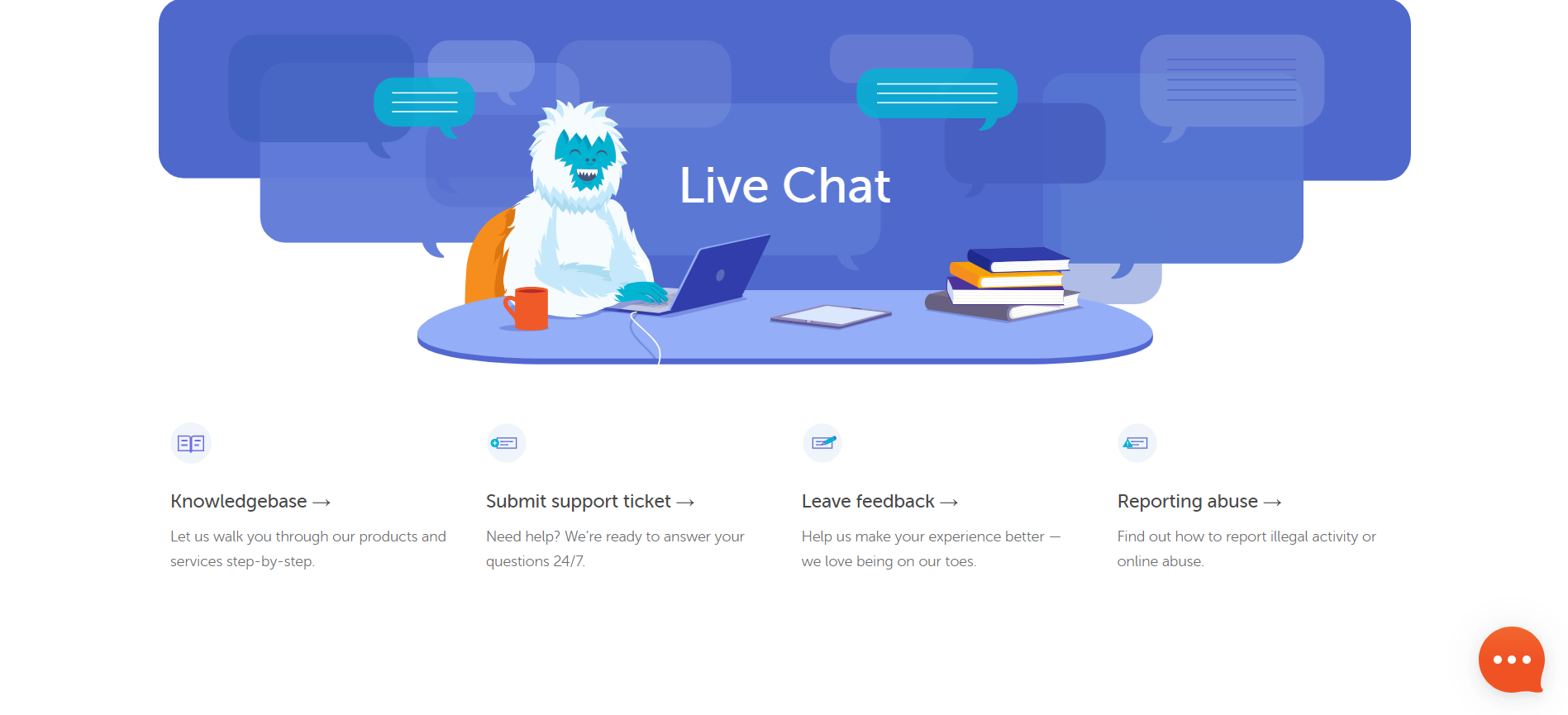
Namecheap provides various customer support options, including 24/7 live chat and a ticketing system, alongside a detailed knowledge base and how-to videos. Their friendly assistance and extensive resources ensure users have multiple avenues to resolve issues. However, the lack of phone support and instances where live chat redirects users to tickets could be limitations for some.

Name.com features live chat support and a virtual bot, though with limited daily availability. Their phone support has restricted hours, but they compensate with social media support and a comprehensive knowledge base. Their user reviews highlight ease of use, reliable service, and good support, albeit with slightly higher pricing. Both providers excel in different areas, but Name.com edges out Namecheap with its well-rounded support features.
Namecheap vs Name.com: User feedback
Namecheap is widely appreciated for its affordability, reliability, and high-quality customer support. Users commend the availability of free SSL certificates, user-friendly cPanel, and outstanding hosting speed. However, shared hosting speed and the occasional slow response from support are noted concerns. Despite these minor drawbacks, Namecheap remains a popular choice for beginners and small to medium businesses due to its competitive pricing and satisfactory service quality.
User feedback for the hosting provider reveals a mixed bag of experiences. While many users appreciate the straightforward domain registration process, easy-to-use interface, and competitive pricing, there are significant concerns regarding customer service. Negative reviews often highlight slow response times, unhelpful support, and issues with account management. Users also express dissatisfaction with hosting services, citing technical difficulties and a lack of advanced features. However, some long-term users remain loyal, finding the platform reliable for domain-related solutions despite its shortcomings in customer support.
Namecheap vs Name.com: FAQ
Which platform is better suited for hosting WordPress websites?
Namecheap offers better performance and advanced features for WordPress hosting, including SSD storage, quick load times, and a built-in CDN. Name.com also provides robust WordPress hosting with easy one-click installations and free daily backups, though it lacks the built-in website builder that Namecheap offers. Ultimately, both are strong contenders, but Namecheap’s specialized WordPress perks may edge out Name.com for this specific purpose.
Are both platforms suitable for beginners?
Both Namecheap and Name.com are suitable for beginners, with Namecheap offering a user-friendly website builder that simplifies the setup process. Name.com features a simple interface and efficient customer support, making it easy for new users to manage their websites. However, the ease of use for Namecheap’s EasyWP dashboard and its inclusion of tools in shared hosting plans might be more appealing for absolute beginners.
What are the major differences in pricing and value between namecheap and namecom?
Namecheap offers a variety of affordable shared hosting and managed WordPress plans, with introductory prices starting as low as $1.98 per month and free domain names for the first year. Name.com, while slightly higher priced, differentiates itself with scalable cloud hosting plans starting at $6.00 per month. Both present substantial value but Namecheap stands out for its lower entry pricing and additional free services.
Which platform offers better customer support?
Namecheap provides 24/7 live chat, a ticketing system, and a detailed knowledge base, making it highly accessible for users requiring immediate assistance. Name.com also offers live chat and a virtual bot with restricted hours, but it compensates with phone support, social media support, and a comprehensive knowledge base. Despite Namecheap’s extensive support avenues, Name.com edges out with its more well-rounded customer service features.
Which hosting service offers more scalability options for growing websites?
Namecheap offers varied plans from shared to VPS hosting, allowing extensive manual upgrade options, though it lacks details on elastic scaling. Name.com boasts excellent scalability through scalable cloud hosting, enabling seamless upgrades for memory and disk space as needed. Both provide flexible options, but Name.com’s scalable cloud hosting broadens its appeal for tech-savvy users needing flexibility.
The making of this blog
We followed a clear, step-by-step process to write and research this article.









